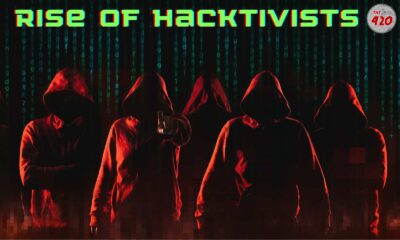Cyber Crime
Dark web no more a secret: 179 cybercriminals arrested from 6 countries, drugs cash seized.

The mysterious world of the dark web is no more a secret, the law enforcement agencies are tracking and nabbing those involved in illegal trade. In one the biggest global dark web crackdown, Europol and the U.S arrested 179 people spread across six countries. Officials have recovered 500 kilograms of drugs, $6.5 million in cash and cryptocurrency.
The operation, known as DisrupTor, was a joint operation by investigators from Europol and the US. It is believed that the criminals engaged in tens of thousands of sales of illicit goods and services across the US and Europe. Drugs seized including fentanyl, oxycodone, methamphetamine, heroin, cocaine, ecstasy and MDMA. Of those arrested, 119 were based in the US, two in Canada, 42 in Germany, eight in the Netherlands, four in the UK, three in Austria and one in Sweden.
ONCE UPON A TIME ON THE DARK WEB…
Police authorities from 9 countries set out on a journey to catch cybercriminals coordinated by @Europol and @Eurojust
179 vendors were arrested.
$6.5m and 500kg of drugs were seized.Want to know the whole story? https://t.co/6H4ErdGieP pic.twitter.com/1ci8rz5ZUT
— Europol (@Europol) September 22, 2020
The crackdown has given a ray of hope to investigators across the globe who is struggling to probe cases involving dark web. Knowing a criminal or tracking them on the dark web is like finding a needle in a haystack.
The joint operation by multiple agencies in different countries has shown that how something as complex as the dark web can be targeted. The dark web is a part of the internet that cannot be found by search engines. It is also the place where cybercriminals or anonymous people can buy illegal drugs and firearms. This part of the internet that is accessible only through specialised tools.
The joint action has sent a strong message to criminals selling or buying illicit goods on the dark web that they are no more hidden and anonymity is gone.
Cyber crime expert claims criminals were thriving just because dark web helped them in being anonymous, but the joint operations for multiple agencies in different cities have made it difficult to hide. With advance decryption and interception tool data, packets and internet traffic can be monitored and tracked. With the help of technology providers law enforcement agencies are now able to zero down the anonymous cybercriminals.
Interestingly, the dark web activities saw a huge increase during the lockdowns imposed due to the ongoing COVID-19 pandemic. Cybersecurity researchers said that the dark web marketplaces saw a 495-percent surge in their business during the last few months. Many illegal activities in India which include drug deal, arm trade, prostitution and child pornography is being done in this underground zone of the dark web.
Operations such as these highlights the capability of law enforcement to counter encryption and anonymity of dark web market places. Police no longer only take down such illegal marketplaces – they also chase down the criminals buying and selling illegal goods through such sites. Law enforcement can also trace back illicit transactions to both the buyer and seller. An individual who purchased illicit goods from hidden sites is at risk of prosecution in a number of countries. The dark web is not a fairy tale – vendors and buyers are no longer hidden in the shadow.
The following authorities took part in this operation:
- Austria: Federal Investigation Bureau (Bundeskriminalamt)
- Cyprus: Cyprus Police (Αστυνομία Κύπρου)
- Germany: Federal Criminal Police Office (Bundeskriminalamt), State Criminal Police Offices (Landeskriminalämter), the competent local police forces and Customs Investigation Offices (Zollfahndungsämter)
- The Netherlands: National Police (Politie), Royal Netherlands Marechaussee (Koninklijke Marechaussee)
- Sweden: National Police (Polisen)
- Australia: Western Australia Police Force, Australian Criminal Intelligence Commission
- Canada: Royal Canadian Mounted Police
- United Kingdom: National Crime Agency; Dark Web Intelligence, Collection and Exploitation (DICE)
- United States: Department of Justice (DOJ), Federal Bureau of Investigation (FBI), Immigration and Customs Enforcement – Homeland Security Investigations (HSI), Drug Enforcement Administration (DEA), US Postal Inspection Service (USPIS), Customs and Border Protection (CBP), Financial Crimes Enforcement Network (FinCEN), Bureau of Alcohol, Tobacco, and Firearms (ATF), Naval Criminal Investigative Service (NCIS) and Department of Defense (DOD)














